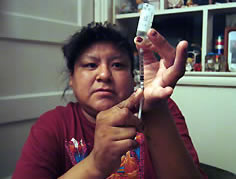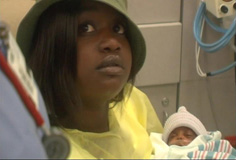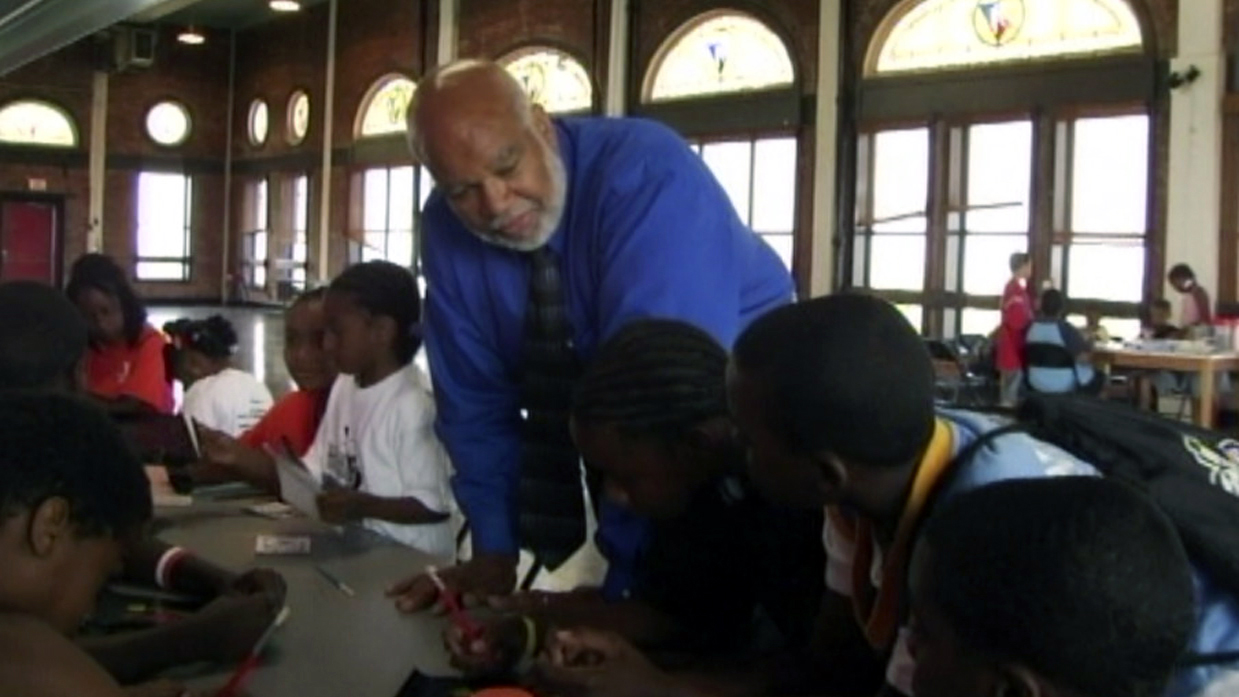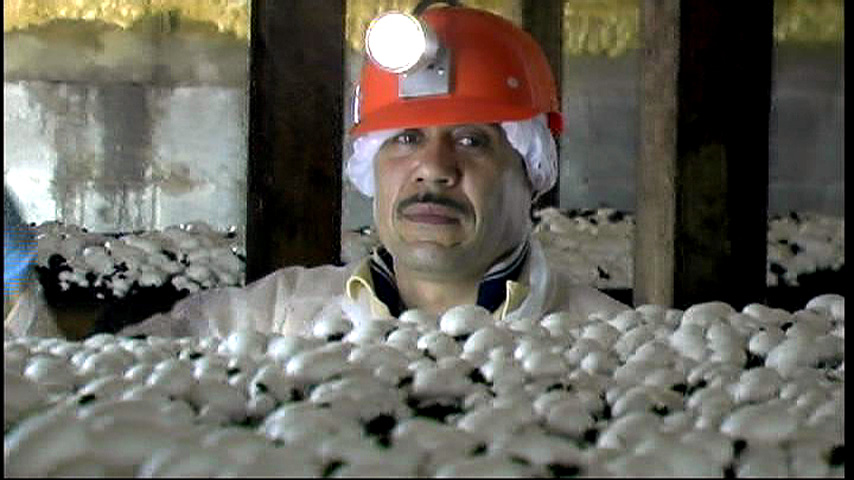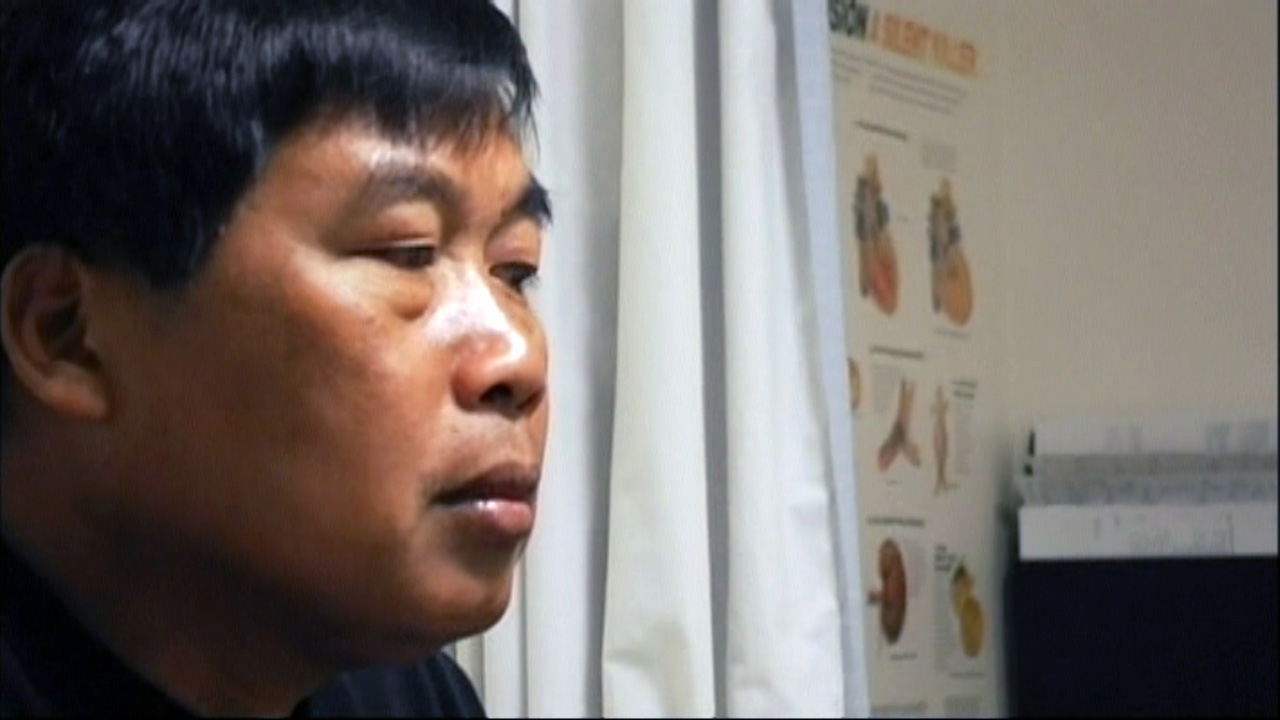![]()
Learn more about the concepts and stories from the documentary by exploring the case studies below.
|
SUMMARY: O’odham Indians, living on reservations in southern
Arizona, have perhaps the highest rates of Type 2 diabetes in
the world. Forty years of poking and prodding by medical researchers
have yielded few improvements, as disease rates continue to rise.
But the O’odham and other Native communities are taking matters
into their own hands – finding hope for their health by strengthening
ties to traditional culture, fighting for their rights, and trying to regain control over their destinies.
RELATED EPISODE: Bad Sugar TOPICS: chronic stress, race/racism, genetics |
|
SUMMARY: Extensive research has shown that high demand-low control jobs are a recipe for chronic stress. Globalization and changes in the labor market over the past 30 years have resulted in a dramatic transformation in the nature and conditions of work – complicating our picture of the sources and types of stressors that workers face, as well as subsequent health outcomes and remedies. RELATED EPISODE: Not Just a Paycheck TOPICS: jobs, chronic stress, power and control, wealth gap |
|
SUMMARY: A look at the history of the Marshall Islands shows a long chain of colonial occupiers, who each influenced the lives of island residents for better and worse. Since the end of World War II, globalization and the U.S. military presence have turned any vestiges of traditional life upside down. Today, an unequal power relationship keeps the island nation dependent on the U.S., yet Marshall Islanders continue to carve out a unique hybrid existence. Improving living conditions and health outcomes means striking a delicate balance between U.S. interests, island politics and the needs of the Marshallese. RELATED EPISODE: Collateral Damage TOPICS: social determinants, diabetes, Pacific Islander, U.S. foreign policy |
SUMMARY: Most scientists agree that race doesn't exist biologically, yet unequal health outcomes persist among racial groups. How can these be explained? How does a social construction get "under the skin?" Old arguments about innate differences have re-emerged, packaged in the new language of genetics. But while genes matter a great deal for individual health outcomes, they don't explain so-called racial ones. As researchers are beginning to show, the chronic stress of everyday racism may play a critical role in shaping inequities in health. RELATED EPISODE: When the Bough Breaks TOPICS: racism, genetics, stress, biology, wealth gap |
SUMMARY: Study after study has confirmed the existence of a gradient linking health to wealth. On average, those on the top enjoy healthier, longer lives than those in the middle, while those on the bottom are sickest and die sooner than everyone else. How inevitable are these outcomes? If hierarchy is a natural part of human society, then what can be done to make conditions more equitable? A look at our own history in the U.S. and what other countries have done shows us that inequities are not fixed. RELATED EPISODE: In Sickness and In Wealth TOPICS: gradient, income/wealth, class |
SUMMARY: As a group, U.S. Hispanic populations are similar to African Americans in terms of average household income, wealth distribution and people living in poverty, but they have lower occupational status, educational level and medical coverage. Yet Latinos tend to have better health than even white Americans. Recent arrivals have the best outcomes; those who are native born or more acculturated do relatively worse. The same pattern seems to hold true for other immigrant groups. What conditions in America are detrimental to the health of newcomers? Several promising initiatives around the country have been launched to improve work and social conditions for immigrants and glean lessons that can benefit all of us. RELATED EPISODE: Becoming American TOPICS: Latino, immigrants, racism, paradox, acculturation |
SUMMARY: Lack of data and the heterogeneity of Asian American groups makes it difficult to get a clear picture of health issues in these communities. Some, as recent immigrants, seem to face the same "paradox" and downward trajectory as Latinos; others are confronting problems unique to their histories. Nevertheless, the wellbeing of Asian Americans - like all other groups in the U.S. - is influenced by the social conditions in which they live: wealth and income level, educational status, neighborhood environment and experiences with racism. The range of outcomes within the Asian American population reflects the diversity of resources and opportunities in various communities and the health-promoting and health-constraining circumstances available to them. RELATED EPISODE: Place Matters TOPICS: Asian American, housing/neighborhoods, wealth, immigrants, racism |
![]()



